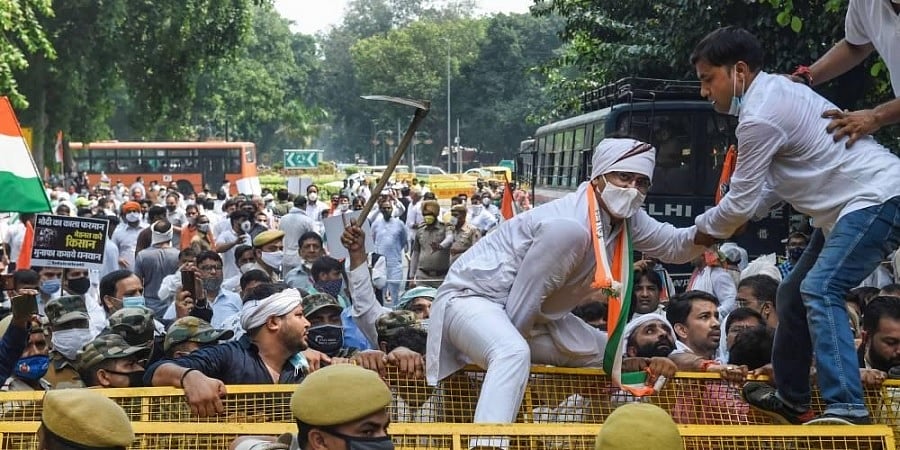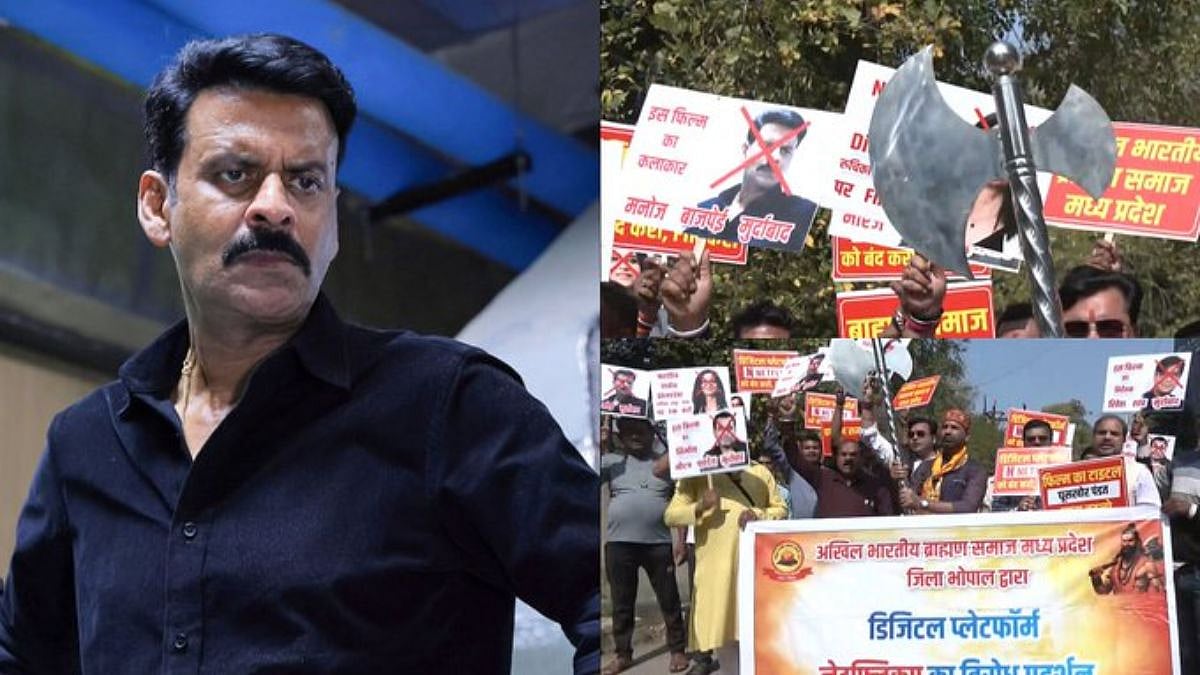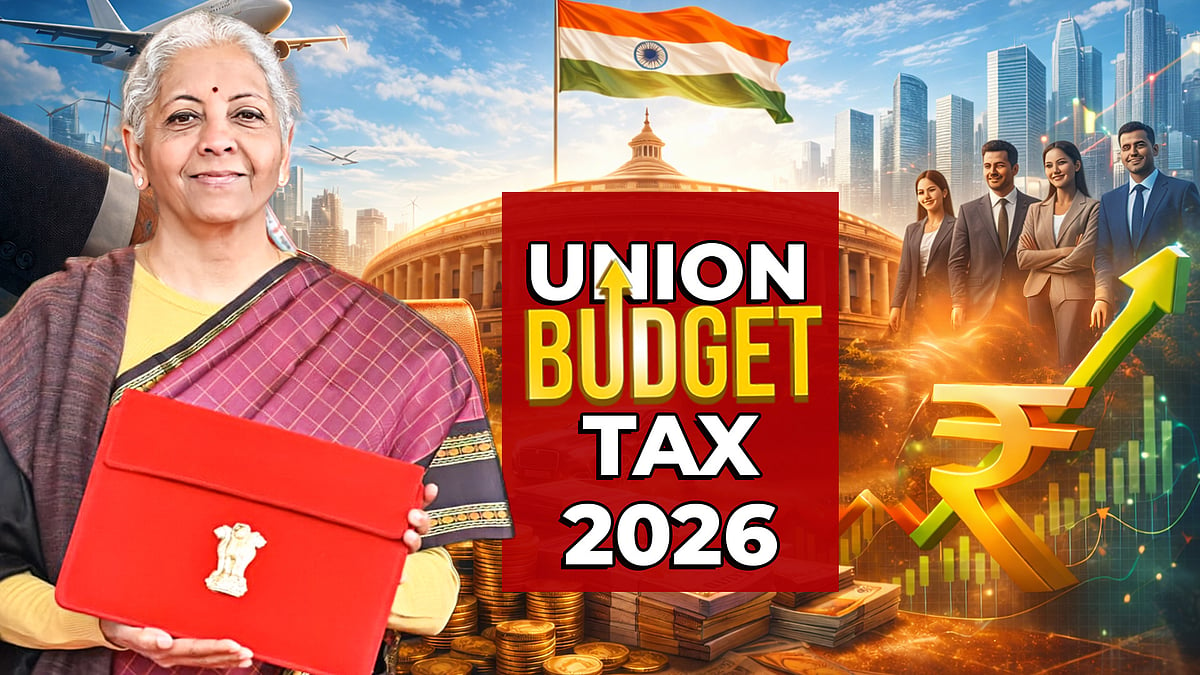Amid the Opposition’s shenanigans in Parliament, the main criticism against Prime Minister Narendra Modi is that the Government pushed through two agriculture bills in Parliament without going through the time-consuming, normal legislative process.
More than the proposed changes in the agricultural sector, the charge is that the Government did not allow the Opposition “sufficient time” to scrutinise and make changes in the laws, which could also have enabled it to claim equal credit for the landmark reforms.
Naturally, Modi’s concern is to fulfil his promise to double the farmers’ income by 2022 —even if it means ruffling the feathers of the current established set-ups in the trade, which are not serving 86 per cent of farmers who are small and marginal tillers.
In his second term, Modi has felt that he is running out of time to usher in the much-needed steps to help farmers earn better value for their produce and make India eventually become the world's food basket.
With his act of cutting time to usher in the changes, Modi has ended up virtually setting the cat among the well-nourished pigeons, in the shape of many middlemen, including commission agents and their political patrons, in states like Punjab and Haryana.
These patrons are now hoping that a large of number of farmers can be sufficiently provoked to go on warpath if their fears and misgivings can be stoked further about an “eventual” abolition of the minimum support price (MSP) for their produce, an end to the current system of sale and purchase through mandis run by so-called agricultural produce marketing committees or APMCs and the loss of farmers’ land to corporate entities.
Perhaps, that is why the Congress and other opposition parties are sensing an opportunity for a replay of events in the wake of the land acquisition bill in 2015, which provoked the farmers to turn against the Modi government.
But the new legislation does not affect the land holdings of farmers at all; it only provides ways for them to produce a high-value crop mix. Firstly, in a bid to assuage concerns in this regard, Modi has gone on record several times in the last few days to reiterate that there is no question of abolition of MSPs or APMCs.
Rather, he has committed to increase MSPs for rabi and kharif crops as and when necessary, to ensure appropriate prices to farmers as always done previously.
The reforms promised under the two legislations — the Farmers’ Produce Trade and Commerce (Promotion and Facilitation) Bill, 2020 and the Farmers (Empowerment and Protection) Agreement on Price Assurance and Farm Services Bill, 2020— are the first attempts to unshackle the agriculture sector.
They seek to liberalise farm trade, enable modern supply chains, allow agri business to engage farmers in contract farming, break interlocked markets and create a barrier-less commodities trade.
Along with these legislations, the amending of the Essential Commodities Act is to remove stockholding limits, to encourage trade and effect better prices.
Basically, marginal and small farmers will have an alternative platform to scout for better prices (more than the assured MSP) for their produce beyond the APMCs, which have failed to end local cartels. Everyone knows why it is so. Several middlemen stand between farmers and consumers, taking a big cut in the farmers’ income.
The counter-argument is that, no matter how big the so-called free market, the disparity between the contracting power of the parties will remain. They will put a poor farmer at the same disadvantage that he is facing today (if he has to face 100 big traders).
However, Modi and his senior colleagues like Defence Minister Rajnath Singh and Agriculture Minister Narendra Singh Tomar have held that, over the last few years, the government has launched many initiatives for farmers and the agriculture sector, including a Rs 6,685-crore scheme for the formation of 10,000 farmer producer organisations (FPOs); the one-of-its kind ₹1 lakh crore Agriculture Infrastructure Fund (AIF); the national Agriculture Export Policy; and the disbursal of more than Rs 90,000 crore of direct benefits to farmers under PM-KISAN.
Now, with these two legislations, the government is confident that a foundation has been created to build a world-class agriculture ecosystem that will benefit farmers, consumers, wholesalers, processors, and start-ups.
Once the rules are framed under the legislation, there will be stringent safeguards laid down to secure farmers from any malpractices. The reforms will introduce competition and efficiency and improve these systems, as well as create freedom and choice for farmers, according to Rajnath Singh. Modi has fielded him to present the government's defence on this issue as he had held the agriculture portfolio in the Vajpayee government.
Under Modi’s scheme of things, farmers are to be encouraged to form FPOs, which is an aggregation of farmers for higher bargaining power, to help them realise benefits from economies of scale.
As Rajnath Singh said, the AIF and market reforms have now provided additional enablers and opened up new opportunities for FPOs. They can invest in farm equipment and infrastructure and build forward market linkages by entering into agreements with agribusinesses.
In this context, the success of the Maharashtra’s Sahyadri Farmers Producer Company Limited is showcased as the best example. At least 8,000 marginal farmers are registered under the FPO, which exports more than 16,000 tonnes of grapes every season. It helps farmers enter into MoUs with leading FMCG companies and access high-tech infrastructure.
Modi’s ultimate hope is that there are hundreds of Sahyadri-style FPOs all over India. In pursuit of his hope, Modi does not mind losing an NDA ally or two. Winning the war on rural poverty is greater priority and will be a feather in his cap.
The writer is a former Senior Associate Editor of Hindustan Times and Political Editor of Deccan Herald, New Delhi









